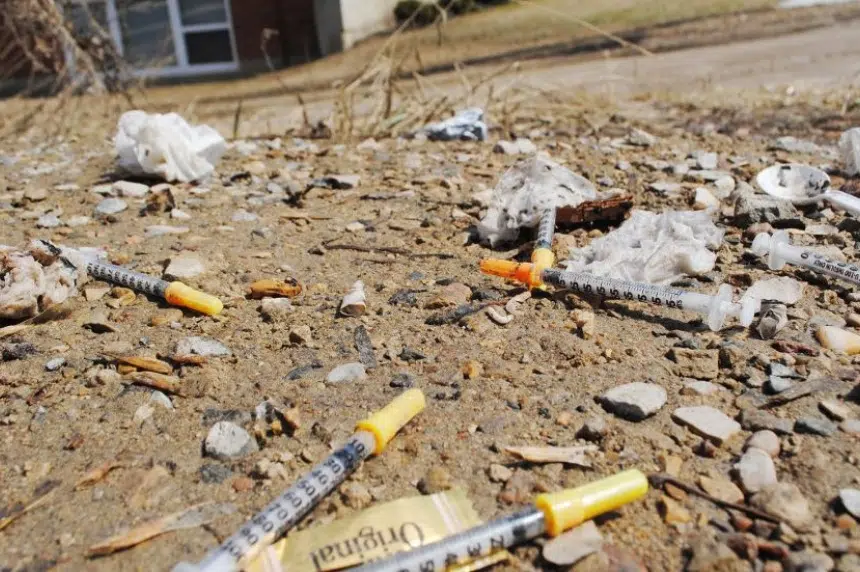A retired anesthesiologist and recovered alcoholic is calling on the province to invest more in mental health and addictions services.
Dr. Wendy Gore-Hickman joined the NDP in the legislature to describe a “disjointed” system that has no flow from the time someone needs help to the time they finally get it.
Gore-Hickman left the province to seek rehab more than a decade ago and returned to serve as an addictions advocate, helping about 15 to 20 families at a time.
While she said there are many pathways to recovery, trying to navigate the system and the time spent waiting at each step is making it “almost impossible” to get help in Saskatchewan.
That’s why she currently helps her clients seek treatment in other provinces.
“When an addict says they want help, that window is open and it closes very quickly,” she said.
Gore-Hickman told the story of a young woman in Saskatoon who was “begging for help” after a heroin overdose. She said the woman received excellent care in the emergency room but upon discharge, she was told to find a naloxone kit and call a detox centre.
The problem was, Saskatoon’s detox centre was closed at the time due to pest issues. Gore-Hickman said addicts often have to wait one or two weeks for a bed to become available.
“If we did get them into that detox bed they would go through a non-medical withdrawal which is barbaric and inhumane,” she said.
Those who do get through the 10-day detox may not be strong enough to last the wait for a treatment bed, which could take several more weeks.
Gore-Hickman called a lack of treatment available immediately after detox “dangerous” because an addict is at a greater risk of overdosing if they relapse during the wait. Within the last month, she’s aware of at least six overdose deaths in Saskatoon.
The addition of rapid access addictions clinics in emergency rooms would help smooth the flow, according to Gore-Hickman. She warned once that’s put in place, there still needs to be beds available for people seeking treatment.
Gore-Hickman explained that work also needs to be done to solve the root issues behind addictions and the stigma surrounding it.
“So often, when you think of a person with addictions you think of some low-life laying under a bridge drinking out of a brown paper bag but I’m a face of addiction,” Gore-Hickman said.
She explained someone invested in her which resulted in another 17 years of productivity from her in the health care system.
Health Minister responds
Health Minister Jim Reiter promised more funding and addictions beds in the next budget. He also acknowledged the wait times faced by some patients.
“That’s not acceptable. We want people to be able to get treatment so we’ll be making steps in that direction,” Reiter said.
The NDP pointed out only five per cent of Saskatchewan’s health budget goes toward mental health and addiction after Premier Scott Moe committed to a 7 per cent target during the Saskatchewan Party leadership race.
“We’re going to meet it, we absolutely are,” Reiter said but couldn’t put a timeline on it.
The Health Minister explained there is more mental health funding allocated in other areas outside of health, like the agriculture and education budget. That includes the farm stress line and a pilot project that will place mental health workers in four schools across the province this fall.











